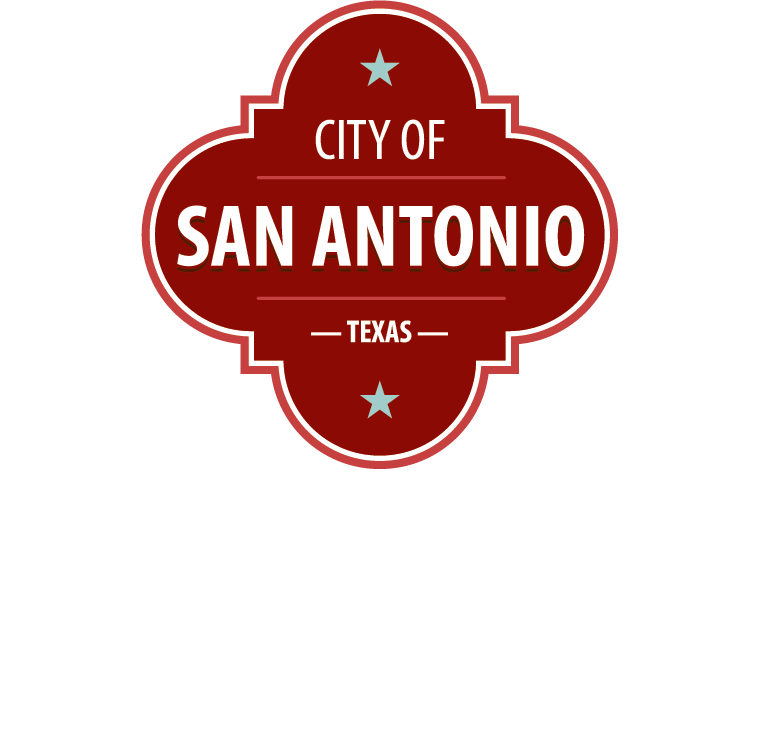"The Illusory Horizon" Soirée
Song Texts
Gabriel Fauré (1845-1924)
L’horizon chimérique, op. 118 (“The Illusory Horizon”) (1921)
Poems by Jean de la Ville
de Mirmont (1886-1914)
La mer est infinie
La mer est infinie et mes rêves sont fous.
La mer chante au soleil en battant les falaises
Et mes rêves légers ne se sentent plus d’aise
De danser sur la mer comme des oiseaux soûls.
Le vaste mouvement des vagues les emporte,
La brise les agite et les roule en ses plis;
Jouant dans le sillage, ils feront une escorte
Aux vaisseaux que mon cœur dans leur fuite a suivis.
Ivres d’air et de sel et brûlés par l’écume
De la mer qui console et qui lave des pleurs,
Ils connaîtront le large et sa bonne amertume;
Les goélands perdus les prendront pour des leurs.
The sea is boundless...
The sea is boundless and my dreams are mad.
The sea sings to the sun while beating the cliffs
and my light dreams are no longer content
to dance on the sea like drunken birds.
The vast movement of the waves carries them away,
the breeze stirs and rolls them in its folds;
playing in the wake, they will form an escort
to the ships which my heart has followed on their flight.
Intoxicated by air and salt and burned by the foam of
the sea which consoles and which washes away the tears,
they will know the open sea and its kindly bitterness;
the lost seagulls will mistake them for their own.
Je me suis embarqué
Je me suis embarqué sur un vaisseau qui danse
Et roule bord sur bord et tangue et se balance.
Mes pieds ont oublié la terre et ses chemins;
Les vagues souples m’ont appris d’autres cadences
Plus belles que le rythme las des chants humains.
À vivre parmi vous, hèlas! avais-je une âme?
Mes frères, j’ai souffert sur tous vos continents.
Je ne veux que la mer, je ne veux que le vent
Pour me bercer, comme un enfant, au creux des lames.
Hors du port qui n’est plus qu’une image effacée,
Les larmes du départ ne brûlent plus mes yeux.
Je ne me souviens pas de mes derniers adieux ...
Ô ma peine, ma peine, où vous ai-je laissée?
I have embarked...
I have embarked on a ship which dances
and which rolls from side to side and pitches and swings.
My feet have forgotten the the earth and its paths;
the supple waves have taught me different rhythms
more beautiful than the weary beat of human songs.
To live among you, alas! Had I a soul?
My brothers, I have suffered on all your continents.
I only want the sea, I only want the wind
to cradle me like a child in the trough of the waves.
Out of the harbor which is now no more than a faded
picture the tears of departure no longer burn my eyes.
I do not remember my last farewells...
Oh my suffering, my suffering, where have I left you?
Diane, Séléné
Diane, Séléné, lune de beau métal,
Qui reflète vers nous, par ta face déserte,
Dans l’immortel ennui du calme sidéral,
Le regret d’un soleil dont nous pleurons la perte.
Ô lune, je t’en veux de ta limpidité
Injurieuse au trouble vain des pauvres âmes,
Et mon cœur, toujours las et toujours agité,
Aspire vers la paix de ta nocturne flamme.
Diane, Selene...
Diana, Selene, moon of radiant metal,
who reflects towards us, by your deserted face,
in the unending monotony of the sidereal calm
the regret of a sun for whose loss we weep.
O moon, I begrudge you your purity
harmful to the vain efforts of the poor souls,
and my heart, ever weary and ever restless,
longs for the peace of your nocturnal flame.
Vaisseaux, nous vous aurons aimés en pure perte
Vaisseaux, nous vous aurons aimés en pure perte;
Le dernier de vous tous est parti sur la mer.
Le couchant emporta tant de voiles ouvertes
Que ce port et mon cœur sont à jamais déserts.
La mer vous a rendus à votre destinée,
Au delà du rivage où s’arrêtent nos pas.
Nous ne pouvions garder vos âmes enchaînées;
Il vous faut des lointains que je ne connais pas.
Je suis de ceux dont les désirs sont sur la terre.
Le souffle qui vous grise emplit mon cœur d’effroi,
Mais votre appel, au fond des soirs, me désespère,
Car j’ai de grands départs inassouvis en moi.
Ships, we shall have loved you...
Ships, we shall have loved you in vain;
the last of you all has gone to sea.
The setting of the sun has carried away so many hoisted
sails that this harbor and my heart are forever deserted.
The sea has restored you to your destiny,
beyond the shore where our steps must end.
We cannot keep your spirits captive;
you need distant places which I do not know.
I am one of those whose desires are on land.
The breeze which intoxicates you fills my heart with fear,
but your call, in the depth of the evening, makes me despair,
for I have great departures unfulfilled within me.
Margaret Bonds (1913-1972)
Poems by Langston Hughes (1901-1967)
The Negro Speaks of Rivers (1941)
I've known rivers:
I've known rivers ancient as the world and older than the flow
of human blood in human veins.
My soul has grown deep like the rivers.
I bathed in the Euphrates when dawns were young.
I built my hut near the Congo and it lulled me to sleep.
I looked upon the Nile and raised the Pyramids above it.
I heard the singing of the Mississippi when Abe Lincoln went
down to New Orleans
And I've seen its muddy bosom turn all golden
in the sunset.
I've known rivers:
Ancient, dusky rivers.
My soul has grown deep like the rivers.
THREE DREAM PORTRAITS (1959)
Minstrel Man
Because my mouth
Is wide with laughter
And my throat
Is deep with song,
You do not think
I suffer after
I have held my pain
So long.
Because my mouth
Is wide with laughter,
You do not hear my inner cry?
Because my feet
Are gay with dancing
You do not know
I die?
Dream Variation
To fling my arms wide
In some place in the sun,
To whirl and dance
Till the bright day is done.
Then rest at cool evening
Beneath a tall tree
While night comes gently
Dark like me.
That is my dream.
To fling my arms wide
In the face of the sun.
Dance! Whirl! Whirl!
Till the quick day is done.
Rest at pale evening,
A tall, slim tree,
Night coming tenderly
I, Too, Sing America.
I, too, sing America
I, too, sing America.
I am the darker brother.
They send me to eat in the kitchen
When company comes.
But I laugh,
And eat well,
And grow strong.
Tomorrow,
I'll sit at the table
When company comes.
Nobody'll dare
Say to me,
"Eat in the kitchen,"
Then.
Besides,
They'll see how beautiful I am
And be ashamed.
Robert Owens (1925-2017)
Poems by Langston Hughes
BORDER LINE, op. 24 (1964)
Border Line
I used to wonder
About living and dying—
I think the difference lies
Between tears and crying.
I used to wonder
About here and there—
I think the distance
Is nowhere.
Night: Four Songs
Night of the two moons
And the seventeen stars,
Night of the day before
yesterday
And the day after tomorrow,
Night of the four songs
unsung:
Sorrow! Sorrow!
Sorrow! Sorrow!
Dustbowl
The land
Wants me to come back
To a handful of dust in
autumn,
To a raindrop
In the palm of my hand
In spring.
The land
Wants me to come back
To a broken song in October,
To a snowbird on the wing.
The land
Wants me
To come back.
Burden
It is not weariness
That bows me down,
But sudden nearness
To song without sound.
One
Lonely
As the wind
On the Lincoln
Prairies.
Lonely
As a bottle of likker
On a table
All by itself.
Beale Street
The dream is vague
And all confused
With dice and women
And jazz and booze.
The dream is vague,
Without a name,
Yet warm and wavering
And sharp as flame.
The loss
Of the dream
Leaves nothing
The same.
Gifts
To some people
Love is given.
To others—
Only heaven.
Circles
The circles spin round
And the circles spin round
And meet their own tail.
Seasons come, seasons go,
The years build their bars
Till we're in jail.
Like a squirrel in a cage—
For the jail is round—
We sometimes find
Ourselves upside down.
Graveyard
Here is that sleeping place,
Long resting place,
No stretching place,
That never-get-up-no-more
Place
Is here.
Convent
Tell me,
Is there peace
Behind your high stone
walls—
Peace
Where no worldly duty calls—
Or does some strange
Insistence beckon
With a challenge
That appalls?
Poppy Flower
A wild poppy-flower
Withered and died.
The day-people laughed—
But the night-people cried.
Gypsy Melodies
Songs that break
And scatter
Out of the moon:
Rockets of joy
Dimmed too soon.
Montmartre
Pigalle:
A neon rose
In a champagne bottle.
At dawn
The petals
Fall.
Fragments
Whispers
Of springtime.
Death in the night.
A song
With too many
Tunes.
Desert
Anybody
Better than
Nobody
In the barren dusk
Even the snake
That spirals
Terror on the sand—
Better than nobody
In this lonely
Land.
The End
There are
No clocks on the wall,
And no time,
No shadows that move
From dawn to dusk
Across the floor.
There is neither light
Nor dark
Outside the door.
There is no door!
Celius Dougherty (1902-1986)
Five Sea Shanties (1948)
Traditional Texts
I. Blow, Ye Winds
‘Tis advertised in Boston, New York, and Buffalo,
Five hundred brave Americans, a-whaling for to go, singing,
Blow, ye winds in the morning, blow, ye winds, heigh-o.
Clear away your running gear and blow, ye winds, heigh-o.
They send you to New Bedford, that famous whaling port.
They put you on a clipper ship before you know you're out,
singing
Blow, ye winds in the morning, blow, ye winds, heigh-o.
Clear away your running gear and blow, ye winds, heigh-o.
It's now we're out to sea, boys, the wind comes on to blow.
One half the watch is sick on deck, the other half below,
singing,
Blow, ye winds in the morning, blow, ye winds, heigh-o.
Clear away your running gear and blow, ye winds, heigh-o.
But now our trip is over and we don't give a damn.
We'll bend on all our stu'nsails and sail for Yankee land,
singing,
Blow, ye winds in the morning, blow, ye winds, heigh-o.
Clear away your running gear and blow, ye winds, heigh-o.
Blow, ye winds in the morning, blow, ye winds, heigh-o.
II. Mobile Bay
Was you ever down in Mobile Bay?
Johnny, come tell us and heave away,
A-heaving cotton by the day,
Johnny, come tell us and heave away.
Aye, aye, heave away,
heave away and draw your pay.
A dollar a day is a sailor's pay,
To work all night and pump all day.
The work is hard, the ship is old,
Johnny, come tell us and heave away.
There's six feet of water in her hold;
Johnny, come tell us and heave away.
Aye, aye, heave away,
heave away and draw your pay.
The bosun shouts, the pumps stand by,
But we can never pump her dry.
The winds were foul, the trip was long,
O leave her, Johnny, leave her.
The grub was bad, but the gin
was strong,
It's time for us to leave her.
Aye, aye, heave away,
heave away and draw your pay.
And before we go we'll sing this song,
It's time for us to leave her.
We'll sing "O may we never be,"
Johnny, come tell us and heave away;
"On a hungry ship the like of she,"
Johnny, come tell us and heave away.
Aye, aye, heave away,
heave away and draw your pay.
The rats have gone, and we, the crew,
It's time, by God, that we went too!



